Lobster back on Chinese menu after Anthony Albanese strikes trade deal
Chinese Premier Li Qiang has agreed in a meeting with Anthony Albanese to end the ban on the $800m live lobster trade by the end of the year.
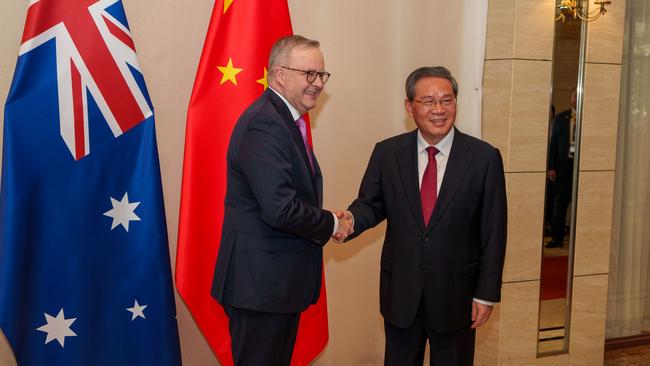
Beijing has agreed to lift the last major trade strike on Australian exports that once totalled $20bn, with Chinese Premier Li Qiang agreeing in a meeting with Anthony Albanese to end the ban on the $800m live lobster trade by the end of the year.
In the fifth face-to-face discussion between the two leaders and their second meeting this year, the Prime Minister announced on Thursday an agreement had been reached to resume the live lobster trade with Beijing in time for the lucrative Chinese New Year.
“With our patient, calibrated and deliberate approach, we’ve restored Australian trade with our largest export market,” Mr Albanese said, following the bilateral meeting with the Chinese Premier in Laos.
“We’ve worked with the removal of trade impediments one by one. The Premier pointed out the quite considerable growth that has occurred in Australian exports, including wine and barley, that has grown to be larger than what was there before there were impediments to that trade.”
Beijing launched a sweeping trade coercion campaign against Australia in April 2020, weeks after the Morrison government called for an inquiry into the origins of Covid in China. China’s official and unofficial black-listing spanned coal, timber, lobster, cotton, beef, barley and wine, totalling more than $20bn a year.
After the end of the lobster ban, only a clutch of beef abattoirs remain on the blacklist, delivering a prominent foreign policy win for the Albanese government.
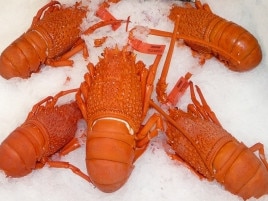
Labor estimates the lifting of the ban will save the jobs of 3000 Australians employed in the industry, 2000 of which are in Western Australia.
Australian National University research fellow Benjamin Herscovitch has estimated that China’s live lobster ban has cost the Australian industry almost $2bn since 2020.
Dr Herscovitch said the timing of the announcement was likely to benefit the Albanese government politically as it ramps up campaigning for a likely election in the first few months of 2025.
“Repair of the Australia-China trade relationship is likely to feature prominently in their election pitch,” Dr Herscovitch said.
“With technical discussions ongoing between Australian and Chinese government agencies, the precise timeline for the removal of the live lobster trade restrictions remains to be seen.”
China’s Foreign Ministry was unable to give further details about the agreement on Thursday evening, but a spokeswoman in Beijing said the Chinese government was working with Australia to “properly resolve issues of mutual concern”.
Speaking in Beijing, Foreign Ministry spokeswoman Mao Ning said China wanted to make relations with Australia “more mature and stable to better benefit the people of both countries”.
Beijing’s ban devastated an industry that previously sold more than 95 per cent of their catch to China, a market that will pay almost twice as much for live lobsters as anywhere else in the world. The trade to China was worth more than $750m in 2019. Since the ban began in November 2020, the Australian industry has only been able to sell the much less profitable frozen lobster products to China.
To meet China’s insatiable demand, smugglers have brought live Australian lobster catch into the mainland Chinese market through Taiwan, Hong Kong and Vietnam.
Lobster farmers said they had learned about the news only when the Prime Minister announced it on Thursday.
Seafood Industry Australia chief executive Veronica Papacosta said: “We’re really excited. Hearing it at the highest levels is really promising. It’s what we haven’t had that other sectors have had.”
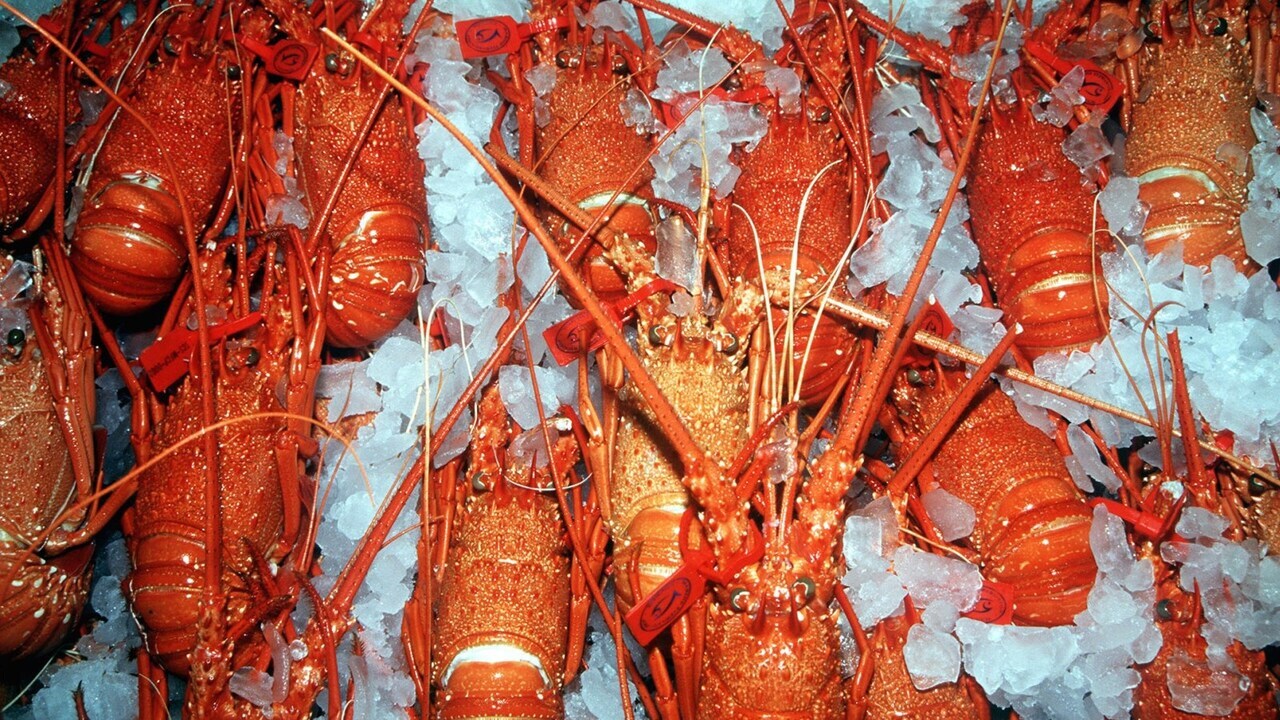
Mr Albanese said the impact of one of the final trade restrictions being lifted was “substantial”, declaring it particularly significant that the lobster ban would be rolled back in time for Chinese New Year, given the high demand for seafood during one of the biggest events in China’s cultural calendar. “This will be welcomed by the people engaged in the live lobster industry, in places like Geraldton (in Western Australia) and South Australia and Tasmania and in so many parts of particularly regional Australia, where this is just one of the elements that produce jobs for Australians and that is what our priority has been,” Mr Albanese said.
South Australian lobster exporter Andrew Ferguson said he gave the Albanese government credit for getting China to end its trade bans.
“You can’t help but be impressed,” said Mr Ferguson, who will have a stall in the Australian pavilion at November’s China International Import Expo in Shanghai. He said the past four years had been “horrific” for small agricultural businesses such as his but added that the lobster trade was going to look different from the pre-2020 era. “We’re going to have to link closer with our Chinese buyers,” he said.
Mr Albanese said he was confident trade with China from sectors hit by bans would “grow back to an even greater amount than they were represented at the time (they were imposed)”.
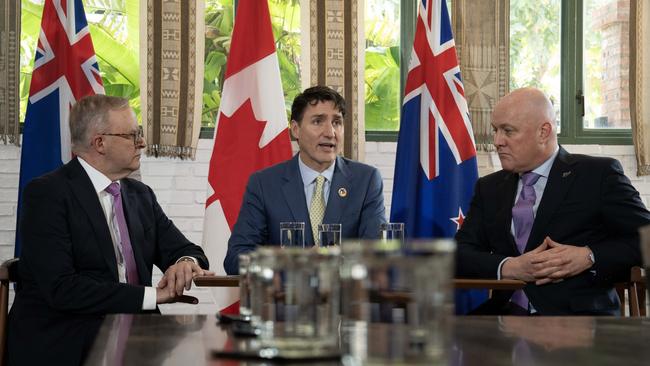
Ahead of meeting Mr Albanese on the sidelines of the ASEAN summit, Mr Li called the Labor leader “an old friend” and said Beijing’s relationship with Australia had “continued to move forward in a positive direction” over the past weeks and months.
“This shows the two sides can work towards the same goal … and embrace the brighter future and … foster a more mature, stable and productive, comprehensive, strategic partnership,” he said.
Mr Albanese said restoration of consistent dialogue with China was “a good thing” and he looked forward to visiting Beijing for the annual leaders’ dialogue next year, while pointing to a visit to China by a bipartisan parliamentary delegation led by the Senate President in the coming days. Jim Chalmers last month became the first treasurer to visit China in seven years.
Despite the positive moves on trade, Mr Albanese said he had been direct with Mr Li over his concerns regarding Beijing’s “destabilising actions in the South China Sea” and its recent missile ballistic tests, as well as the issue of Australian citizen Yang Hengjun, who has been detained in China for more than five years.
“China put forward its perspective and I put forward Australia’s,” he said. “That the UN Convention of the Law of the Sea is important, it’s important for international trade, so much international trade goes through the South China Sea and we need to have military-to-military engagement and co-operation and dialogue to avoid any misadventure. I put forward our view about the importance of those international rules being upheld.”
China has been conducting a range of military incursions into contested areas of the South China Sea, firing water cannons at Filipino vessels which Philippines President Ferdinand “Bongbong” Marcos warned would constitute an act of war if any Filipino were ever harmed in such incidents.
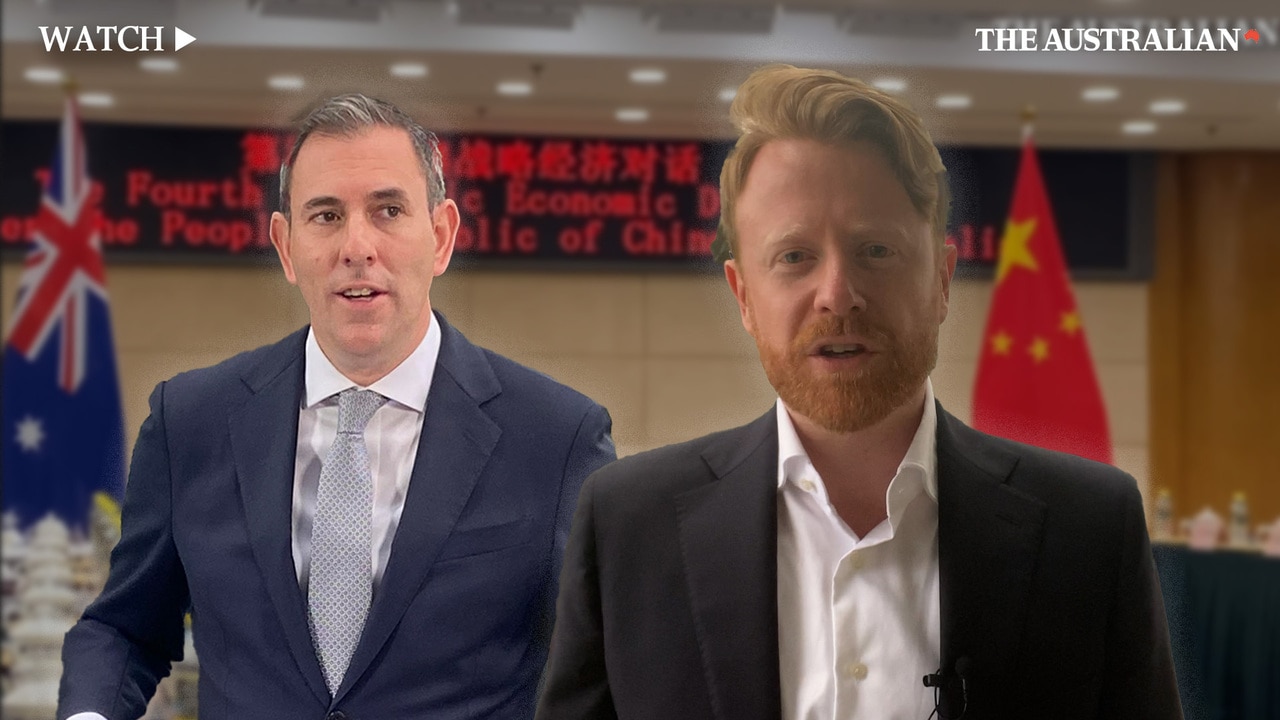
Ahead of a bilateral meeting on Friday with Thailand – one of Australia’s biggest car import sources – Mr Albanese stood firm on Australia’s timeline for its vehicle emissions scheme, to begin in January. Thailand in March raised concern with the speed of the scheme’s implementation, urging Australia to use a phased approach instead.






To join the conversation, please log in. Don't have an account? Register
Join the conversation, you are commenting as Logout